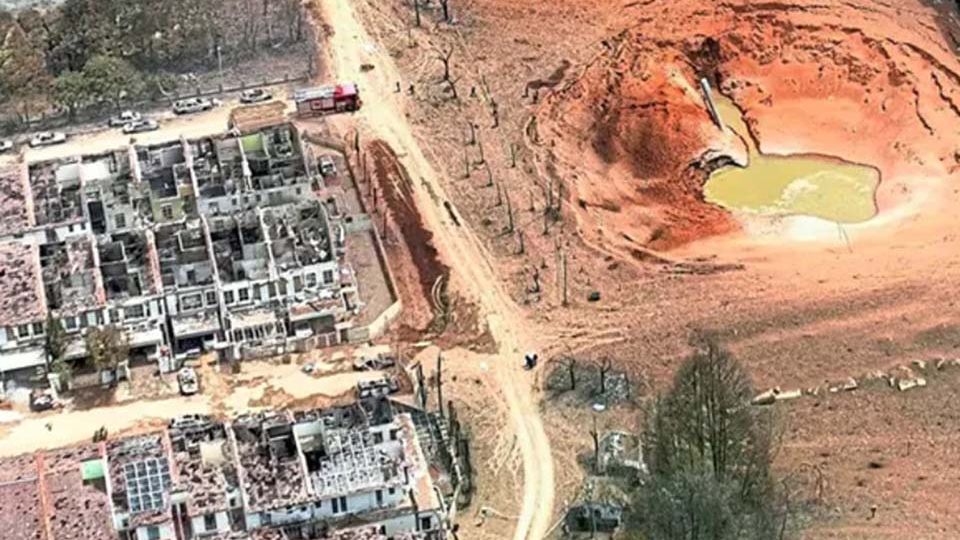April 7, 2025
KUALA LUMPUR – “IS there any political fallout from the Putra Heights gas pipeline blast?” a politician asked over the phone on Wednesday.
“As far as what I’ve monitored, none,” I replied.
“The public knows that it is a disaster not connected to politics. I don’t see anyone trying to use it for political mileage,” I said of the explosion and fire that took place in the Selangor township.
I also pointed out that current Opposition Perikatan Nasional does not behave like Pakatan Harapan did when it opposed the government. Before it came into power, Pakatan could make any issue politically radioactive. Take, for example, how the coalition opposed Australian rare earth mining firm Lynas Corporation continuing its operations in Malaysia.
“Perikatan, for whatever reason, is not as good as Pakatan in making the government look bad,” I said.
Some might disagree with my assessment, especially regarding the 3R (race, religion, and royalty) issues.
I did note that Selangor Perikatan chairman Datuk Seri Mohamed Azmin Ali had urged the state government to review all development projects near the gas pipeline in Putra Heights. Azmin has also called for an independent, thorough, and transparent investigation to address concerns surrounding the incident.
But his statement was mild. Azmin of Perikatan is not as “politically radioactive” as Azmin of Pakatan when he was Selangor mentri besar under the coalition.
“Pakatan has been in control of Selangor for 17 years. I see on social media and WhatsApp that people are blaming them,” said the politician, referring to Pakatan Rakyat (consisting of PKR, DAP, and PAS) and Pakatan Harapan (PKR, DAP, Amanah, and Upko), which has ruled the state since 2008.
He shared a viral video and messages about systematic failure by the state and federal governments.
When I ended the WhatsApp call, Meta, the owner of Facebook and WhatsApp, started populating my social media and messaging feeds with negative feedback on political parties and politicians in power and the Putra Heights inferno. It might have been a coincidence, or Meta was “listening” to my conversation on its platforms, or both.
Facebook commentators posted negative remarks about DAP’s one-week online donation drive for the victims in the Putra Heights disaster.
“At the end of this period, all collected donations will be distributed to the victims, with the amount determined based on the official damage categories. This donation is in addition to the assistance announced by the government,” DAP stated on Facebook.
Some comments on the DAP FB page were brutal. Many reminded the party that it is the government and should be helping the victims rather than asking for donations as it did when it was in the Opposition. Other commentators questioned why the government could donate millions to other countries but asked for donations from its rakyat for a domestic disaster.
It seemed to me that the political fallout from the Putra Heights inferno has been largely self-inflicted. While DAP’s donation drive might have been well- meaning, it did not make political sense now that the party is in power in the state and federal governments.
Subang MP Wong Chen also self-inflicted some fallout. The PKR politician posted on Face-book that the blast “DID NOT occur in Parliament Subang nor in DUN [state seat] Subang Jaya or DUN Kinrara”. His post gave me the impression that he did not want to have to be concerned about voters living in constituencies adjacent to his parliamentary seat.
“A large part of the area affected is in Parliament Kota Raja, a small portion is in Parliament Puchong. The social media responses of YB Mat Sabu, MP for Kota Raja, and YB Yeo Bee Yin, MP for Puchong, are attached,” he wrote, referring to Amanah MP for Kota Raja Datuk Seri Mohamad Sabu and DAP MP for Puchong Yeo.
However, a signboard near the blast site states that Putra Heights is in Subang Jaya and under the Subang Jaya City Council.
“Going forward, any request for assistance from victims of the fire should be directed to the parliamentary offices of Kota Raja and Puchong,” the Subang MP wrote.
Some voters were not happy with his post, as even though they live in Putra Heights, they vote in the Subang parliamentary constituency.
Despite the self-inflicted political wounds by government parties and politicians, I still don’t think there will be political fallout from this disaster.
However, the politician who contacted me disagreed. He asserted that some major disasters in other countries had wide-reaching political consequences. The former MP mentioned the train explosions in Madrid in 2004, which killed 193 people and injured around 2,500.
I looked up the terrorist attack, which is one of the deadliest in Spain’s history.
An article in Britain’s Guardian newspaper with the headline, “Furious voters oust Spanish government” on March 15, 2004, reported that “Spanish voters punished Prime Minister José María Aznar’s People’s party for the bloodshed of last week’s Madrid terrorist attacks yesterday, throwing it out of government in an angry reaction to his handling of the aftermath.
“In one of the most dramatic elections of the post-Franco era, voters turned on the ruling party, convinced that the multiple bomb attack on Madrid’s packed commuter trains had been carried out by al-Qaeda and with a growing sense that the People’s Party had tried to hide the truth,” it reported.
The politician also pointed out that some governments are blamed for slow or ineffective search and rescue efforts. “Even floods [in Malaysia] have political consequences – mostly bad – for local politicians,” he said.
Politicians and journalists have used words such as “tsunami”, “earthquake”, “avalanche” and “landslide” to describe election results. Will we use inferno in the 16th General Election?


